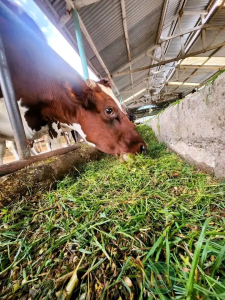Crop production
3. Types of weeds
3.2. Importance of weeds
While often considered a nuisance, weeds play several important roles in ecosystems:
* Soil Protection:
* Weeds are often the first plants to colonize disturbed soil, preventing erosion by wind and water. Their roots help stabilize the soil.
* They can also improve soil structure and fertility by adding organic matter as they decompose.
* Wildlife Support:
* Weeds provide food and shelter for various wildlife, including insects, birds, and small mammals.
* Many weeds produce seeds that are an important food source for birds, especially during the winter.
* pollinators utilize weeds as a food source, especially in early spring.
* Ecological Indicators:
* The presence and type of weeds can indicate soil conditions, such as pH levels, moisture content, and nutrient deficiencies.
* Nutrient Cycling:
* Some weeds have deep roots that can bring nutrients from deeper soil layers to the surface, making them available to other plants.
* Biodiversity:
* Weeds add to the overall biodiversity of an area.
